LastPass is again in the news, but this time for all the wrong reasons. The free plan was just put on hold by the corporation. LastPass was discovered to gather and send personal information of customers using the Android app, according to a security audit conducted by the German company Exodus. It accomplishes this with the use of seven distinct built-in trackers. Bitwarden is a great open-source alternative to LastPass if you want to move out of the LastPass ecosystem. But, hey, the movie isn’t easy, and LastPass does have certain advantages. Let’s see the detail of Bitwarden vs LastPass.
Bitwarden vs LastPass
The comparison is based on a number of criteria. We’ll discuss cross-platform compatibility, user interface, features, security, backup, mobile experience, price, and more. Let’s get this party started.
Cross-platform Availability
I usually recommend that readers search for cross-platform compatibility in a password manager first. You need to be able to access your personal information on all of your devices.
Bitwarden supports every platform and browser you can imagine. It’s available on iOS and Android, and it also offers native desktop apps for Windows, macOS, and Linux. It also works with all major browsers, including Chrome, Safari, Firefox, and Edge.
LastPass is also not far behind. The popular password manager is accessible on all four major operating systems – Android, iOS, Windows, and Mac – and includes Chromium and Firefox browser extensions.
User Interface
Both Bitwarden and LastPass navigate using the usual macOS menu. LastPass’ approach here appeals to me. It’s straightforward, works right out of the box, and isn’t overly complicated with a plethora of options and menus.
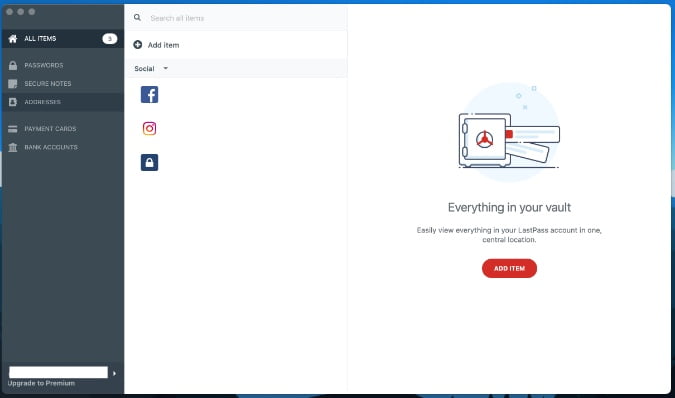
Bitwarden seems to be on the safe side. In comparison to LastPass, it appears to be uninteresting at first glance. The program also supports dark themes for those who prefer them.
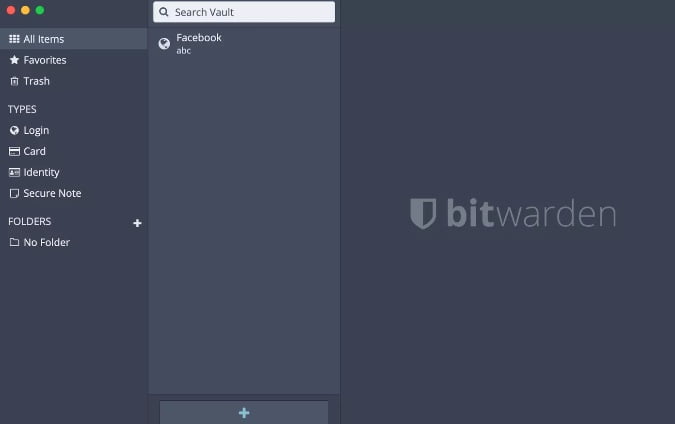
Add a New Item
I enjoy how LastPass has a clean UI with simple icons when I’m adding a new item. In comparison to Bitwarden’s little slide-down menu, it’s easier to see and recognize.
You may fill in all the necessary information, such as your name, email, password, and URL, as well as use a password generator and establish folders such as Social, Shopping, Lifestyle, Bank, and so on.

You can add new products to Bitwarden by clicking the ‘+’ button at the bottom. Only log in, card, identity, and secure note are available as new item kinds.
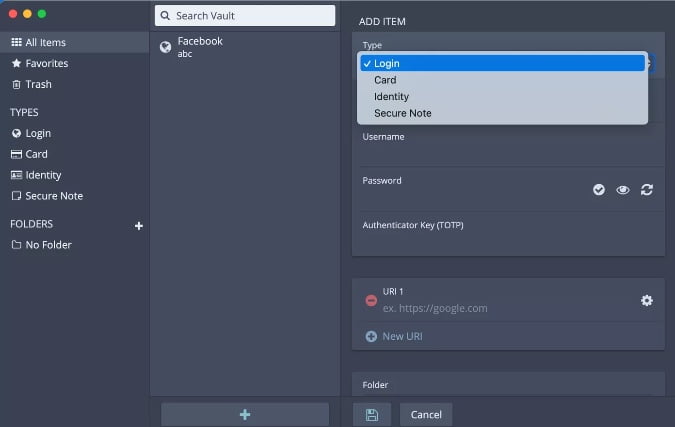
When it came to creating new entries for login items and passwords, I found LastPass to be far superior. When you sign in for the first time using an app or browser, both programs offer to save new entries automatically.
Security and Backup
Bitwarden is a free and open-source software platform. All of your data is securely encrypted before it leaves your device using Bitwarden. You are the only one who has access to it. Even if Bitwarden wanted to, they wouldn’t be able to see your data. End-to-end AES-256 bit encryption protects your information.
Bitwarden puts all user data on the Microsoft Azure Cloud platform for backup.
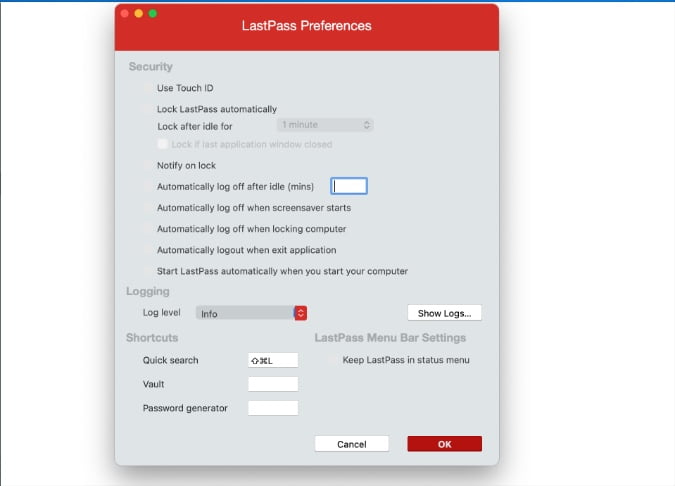
All the data is synced and stored on LastPass’s own servers. When the company was hacked, it suffered a major setback as a result of this practice. There is a danger that your data will be exposed as a result of a malware assault. We’re hoping they’ll also allow users to save data on third-party cloud storage services like OneDrive or Dropbox.
However, there is a benefit. You can regain your account if you forget your master password.
Other Features
LastPass has a password audit feature that displays weak/repeated passwords, secure notes, password sharing, browser integration, and other features. LastPass monitors the dark web and sends you an alert if your sensitive information is at risk.
The multifactor authentication option is also available in LastPass Premium (more on that later).
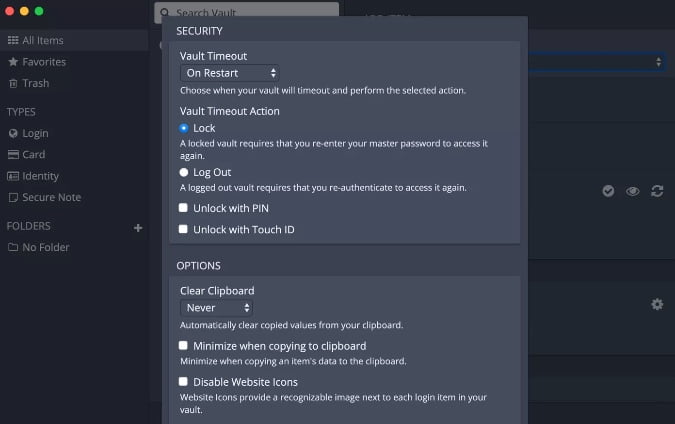
Bitwarden also has a lot of handy features. Encrypted file attachments, security audit reports, two-factor authentication, user groups, shared objects, and more features are included in the list. But what drew my attention was the fact that Bitwarden can be self-hosted on your own server. It’s a little tough, and it necessitates a nerdy mind, but it provides you with complete control over your data.
Pricing Plan: Bitwarden vs LastPass
Bitwarden is open-source, and the free version will suffice for the vast majority of users. If you pay, you’ll receive access to encrypted file attachments, more second-factor security choices, and reports on the overall security of your passwords.
Bitwarden is only $10 a year. That is far less expensive than the competition. The monthly cost of the family plan is $3.33.
LastPass follows the subscription model. For $3 a month, you can use the app on all platforms. Advanced features like vault sharing and priority support are also available with LastPass. The Family package costs $4 per month and grants access to six additional premium keys.
A Word on Mobile Apps
Face ID and fingerprint support are available in both LastPass and Bitwarden for iPhone and Android, respectively. They’re also compatible with the auto-fill feature.

I found Bitwarden to be somewhat behind LastPass in terms of overall appearance, feel, and responsiveness throughout my limited testing.
Read also: LastPass vs Dashlane: Which Password Manager Is Better
Final Words: Bitwarden vs LastPass
Look over the list of apps above to choose the best password manager for you. LastPass has more capabilities and a more appealing design, but it also has a shady history of hacking and tracking. LastPass is more closed-source, secure, private, configurable, and expensive than Bitwarden.

1 thought on “Bitwarden vs LastPass Which Password Manager Is Better”